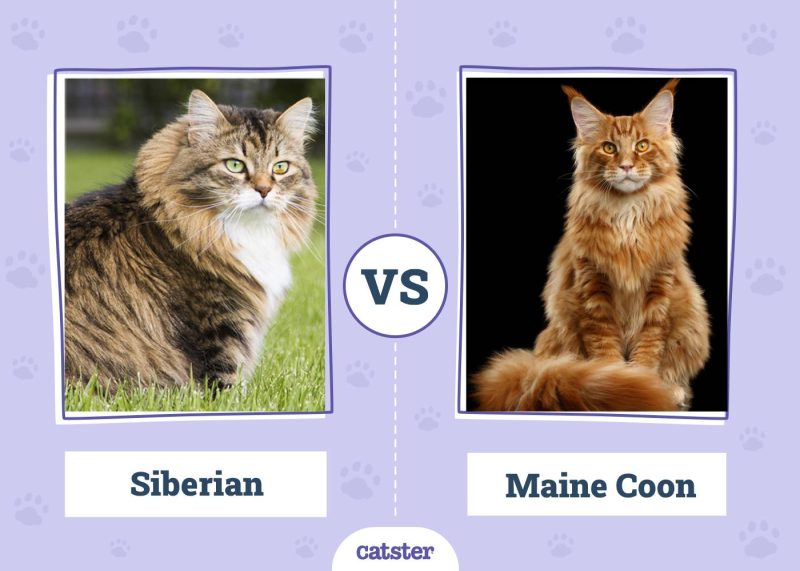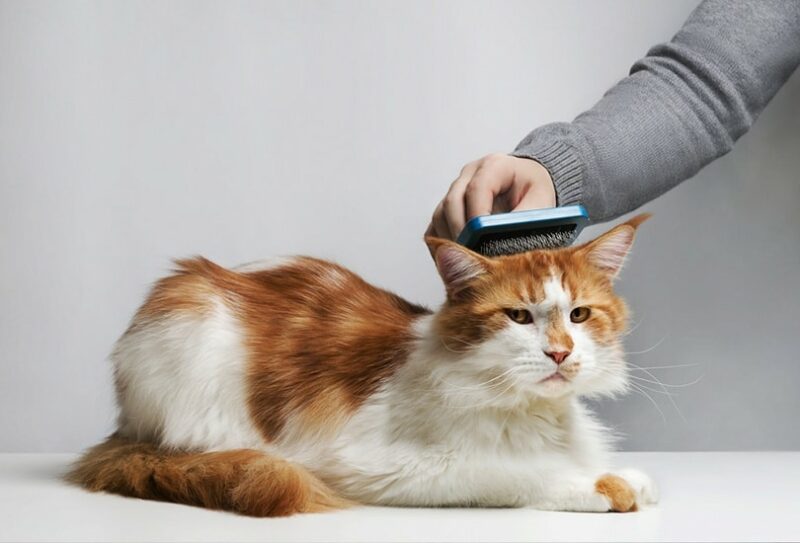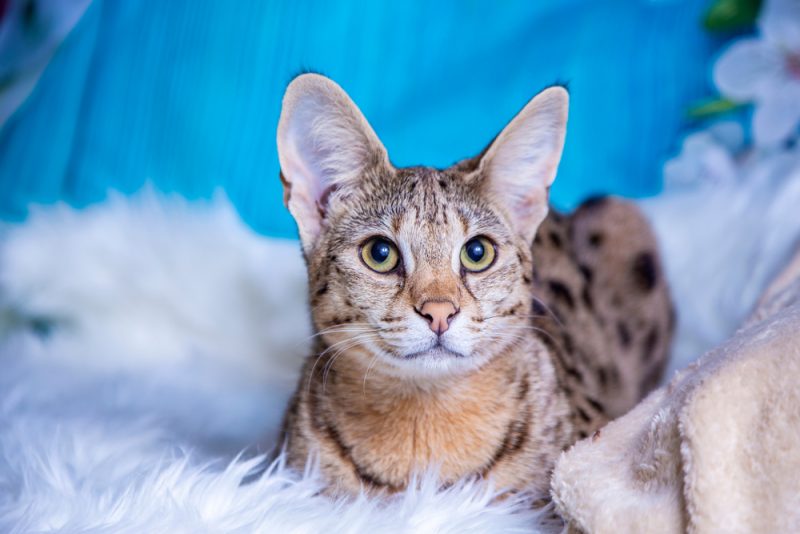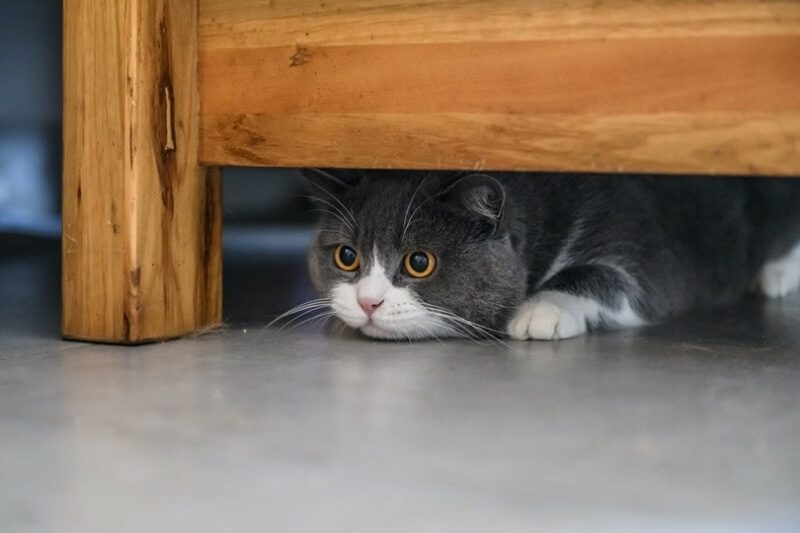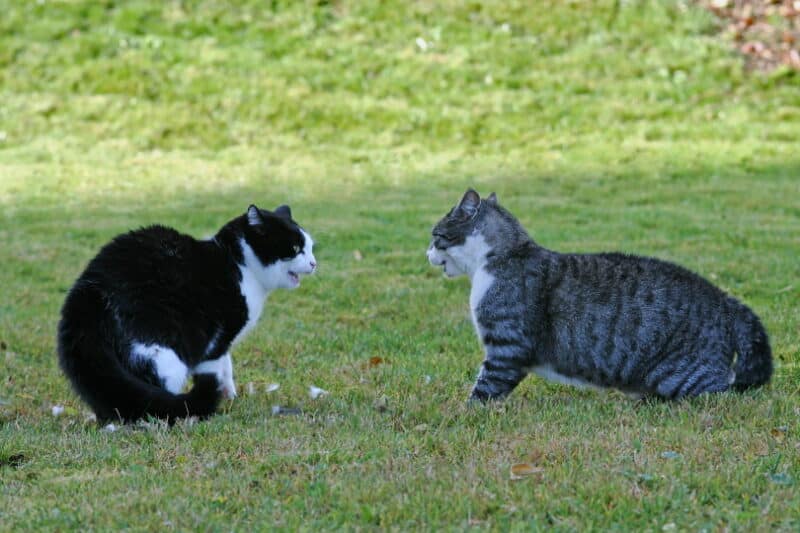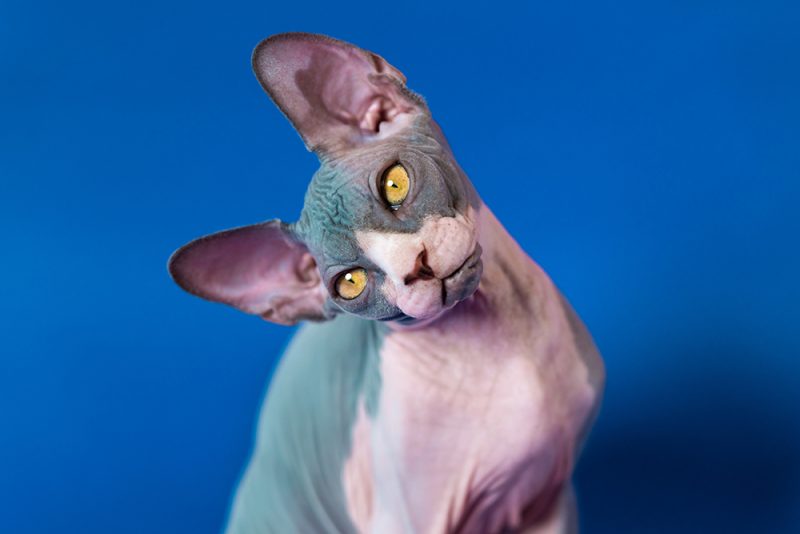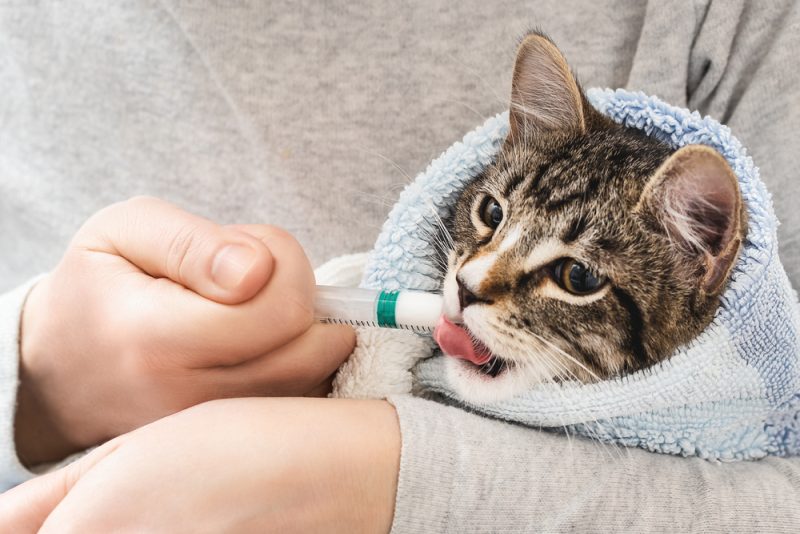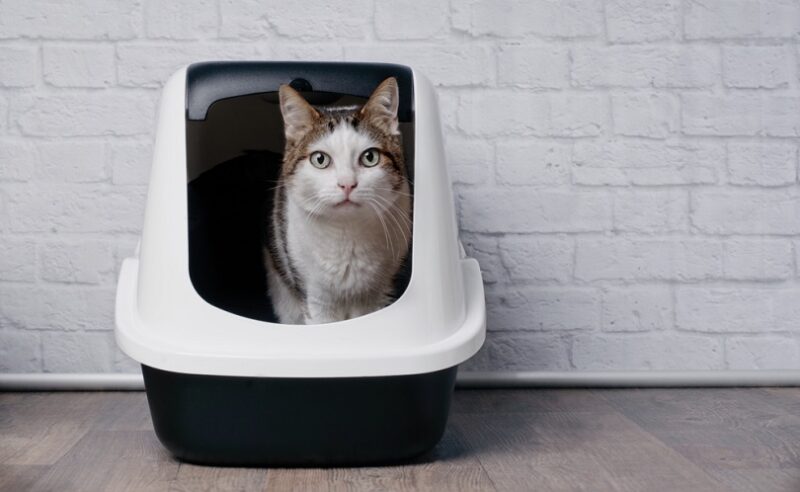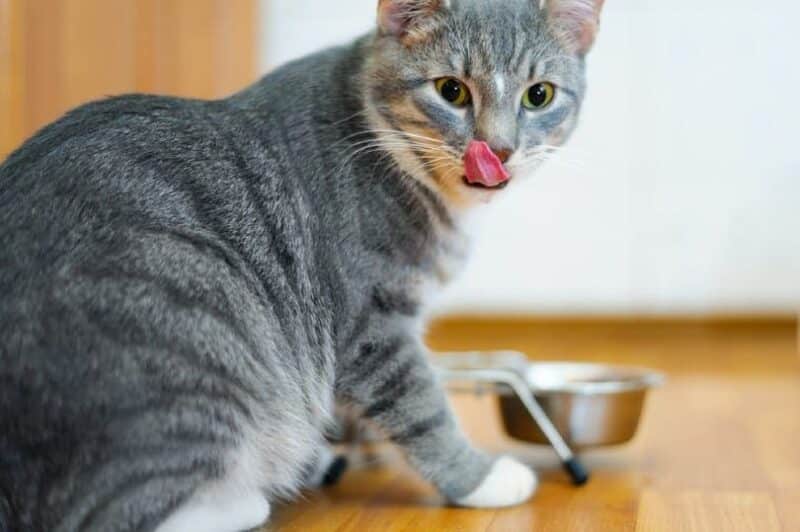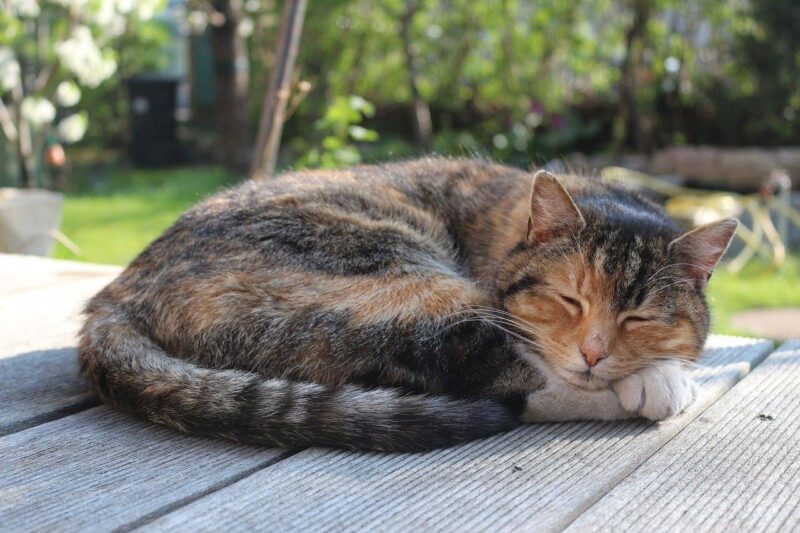In this article
View 8 More +If you aren’t familiar with the Desert Lynx cat, you aren’t alone! This is a rarer cat breed—a hybrid of several breeds created to look like a wild cat. Because it is rarer, it can be challenging to track one down if you want to adopt. But if you do adopt one of these cats, you’re in for a world of fun!
Breed Overview
Height:
10–16 inches
Weight:
8–16 pounds
Lifespan:
13–15 years
Colors:
Snow, silver, blue, charcoal, lavender, chocolate, red, copper, beige, ebony
Suitable for:
Active families, people who are home often, people with allergies
Temperament:
Sweet, playful, social
Known for its dog-like nature, the Desert Lynx is active, friendly, and loves to hang out with its people. These felines have even been known to play fetch or go for a swim! Ready to learn more about this beautiful breed? Then keep reading for what you need to know to decide if this cat breed is right for you and your family!
Desert Lynx Cat Characteristics

Temperament & Intelligence of the Desert Lynx Cat
The Desert Lynx cat breed is known for being incredibly sociable—they love to be around their humans and suffer from separation anxiety when left on their own. And because they tend to act more like dogs than felines, you’ll find this breed extremely playful and loyal. That playful side means you’ll need to dedicate time each day for regular playtime; otherwise, your cat could become bored and take to scratching up the sofa or engaging in other destructive behavior. Overall, though, this is one feline that will constantly be underfoot, up in your business, and a friend for life.
When it comes to intelligence, the Desert Lynx breed is quite smart. This makes it easier to train them, whether you want to teach them to only use the scratching posts instead of the furniture, how to fetch, or something more complicated. That intelligence also means it wouldn’t be remiss to invest in some good puzzle toys for your pet to keep them fully engaged and entertained.
Are These Cats Good for Families?
The Desert Lynx is an excellent choice for families, as these cats are known to get along well with children. That doesn’t mean you can forgo early socialization between kitty and kids, though. You’ll need to get them used to each other starting from a young age, and if you have smaller children, remember to always supervise any interactions, as accidents can happen.
Does This Breed Get Along with Other Pets?
The Desert Lynx can get along with other pets in the home absolutely; again, early socialization will be key. If you have smaller pets around, though—like rabbits or rodents—it would be best to keep them away from this cat as they could trigger the Desert Lynx’s predator instincts. But as far as dogs and cats go, there shouldn’t be issues between them and this breed. Like with the kids, though, supervise the first several interactions between any pets and the Desert Lynx.

Things to Know When Owning a Desert Lynx Cat:
We realize the best parts of having a cat are cuddling, petting, and playing, but there’s more to cat ownership. That means there are things you should know before buying or adopting a new kitty like the Desert Lynx. This includes how to feed them, exercise requirements, and more.
Food & Diet Requirements 
The Desert Lynx may look like a wild cat, but its diet is still the same as other domestic felines. This means your pet will need food where it gets most of its nutrients from meat since cats are obligate carnivores. So, look into getting a high-quality dry or wet food that contains meat or meat meal as the first ingredient. And because a cat’s nutritional needs change as they grow, look for life stage cycles on the bag. This way, you can ensure your Desert Lynx kitten is eating appropriate kitten food rather than adult food and vice versa.
Speak with a veterinarian about how much and how often your cat should be fed. Caloric needs will change as your pet grows, after all. When it comes to how often your cat should eat, some cats do well on a free-grazing feeding system where food is left out all day, but others will overeat if they have that option.
Need veterinary advice but can't get to the clinic? Catster recommends PangoVet, our online veterinary service. Talk to a vet online and get the answers and advice you need for your cat without having to leave your living room — all at an affordable price!

Exercise
We mentioned that these kitties act more like dogs than cats and are extremely active and playful. That means you must dedicate time to playing with them each day. (Plus, keeping your pet active lessens its chances of becoming overweight, which is a bonus.) Since felines are most active at dawn and dusk, try scheduling some playtime during those hours so your cat will be in the mood to play with you. And use a variety of toys, so they don’t get bored. Aim for 20-30 minutes a day of interaction and play with your pet.
Training
Because the Desert Lynx is such an intelligent breed, any training you want to do with them should be fairly simple (although keep in mind that felines can be stubborn if they don’t want to do something). Depending on what you want to train your pet to do—use scratching posts, fetch, or stay calm for vet visits—remember that your cat won’t pick up things overnight, no matter how smart it is. Training takes time, so you’ll need to dedicate enough time and keep at it consistently for good results.
Grooming ✂️
Luckily, there’s not much grooming to be done when it comes to the Desert Lynx. You’ll likely need to brush out their coat at least once a week (good news for allergy sufferers—this breed has very little dander, so it could make the perfect breed for you!). Other than that, it’s the standard clipping of the nails when they get too long and brushing teeth to ensure good dental health. That’s really all you need to do.
Health and Conditions
The Desert Lynx breed isn’t known to have any breed-specific conditions and is generally an extremely healthy cat. However, it is still a hybrid, so there’s a chance a cat might end up inheriting one of its parents’ conditions. Below you’ll find a few of the conditions associated with the cats that make up the Desert Lynx, as well as some common illnesses that cats, in general, can develop.
- Sensitivity to certain vaccines
- Obesity
- Arthritis
- Hypertrophic Cardiomyopathy
- Diabetes

Male vs Female
There’s really no difference between a male and female Desert Lynx. Sometimes the males can grow to be a bit larger (but only sometimes!); but otherwise, personality and temperament will be the same. You’ll still have a fun-loving, loyal, dog-like kitty in your home. Deciding which gender is best for you will come down to personal preference.

3 Little-Known Facts About the Desert Lynx Cat
1. The Desert Lynx is a mix of several other breeds
Some hybrid kitties are a crossbreed of just two cat breeds, but the Desert Lynx is a mix of Maine Coon, wild bobcat, Pixie Bob, and the Manx. So, it gets a bit of its looks and personality from each one of those.
2. They act more like dogs than cats
Talk to any Desert Lynx owner, and they’ll tell you that this breed is quite similar to dogs in how they act. Unlike the aloofness some breeds have, the Desert Lynx is social and loyal and loves to be around its people. They even like to play fetch!
3. The Desert Lynx breed is recognized by two associations
Both the Rare and Exotic Feline Registry and The International Progressive Cat Breeders Alliance recognize the Desert Lynx.

Final Thoughts
The Desert Lynx is a unique cat to have as a pet, no doubt, but it’s also much harder to find one than, say, a Domestic Longhair. If you do track one down, though, you should have a ton of fun with this feline since the breed is so fun-loving and playful. You’ll also have a mini-shadow to follow you around wherever you go. Keep in mind that the Desert Lynx breed is prone to separation anxiety, so if you’re gone often, this probably isn’t the breed for you. But if you’re an active family with kids or someone who spends a good portion of their time at home, you could find this breed to be the perfect fit!
Featured Image Credit: Patrick Hatt, Shutterstock


